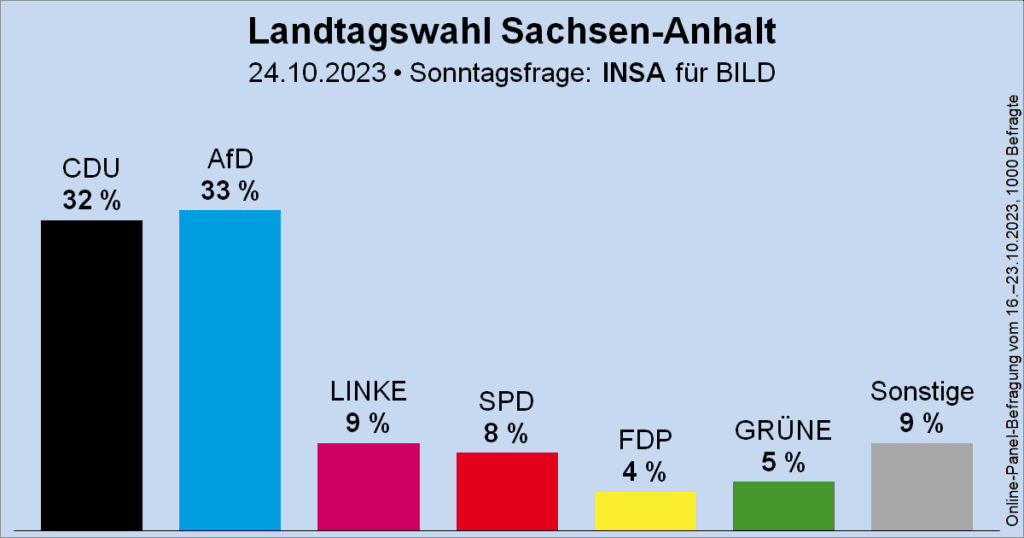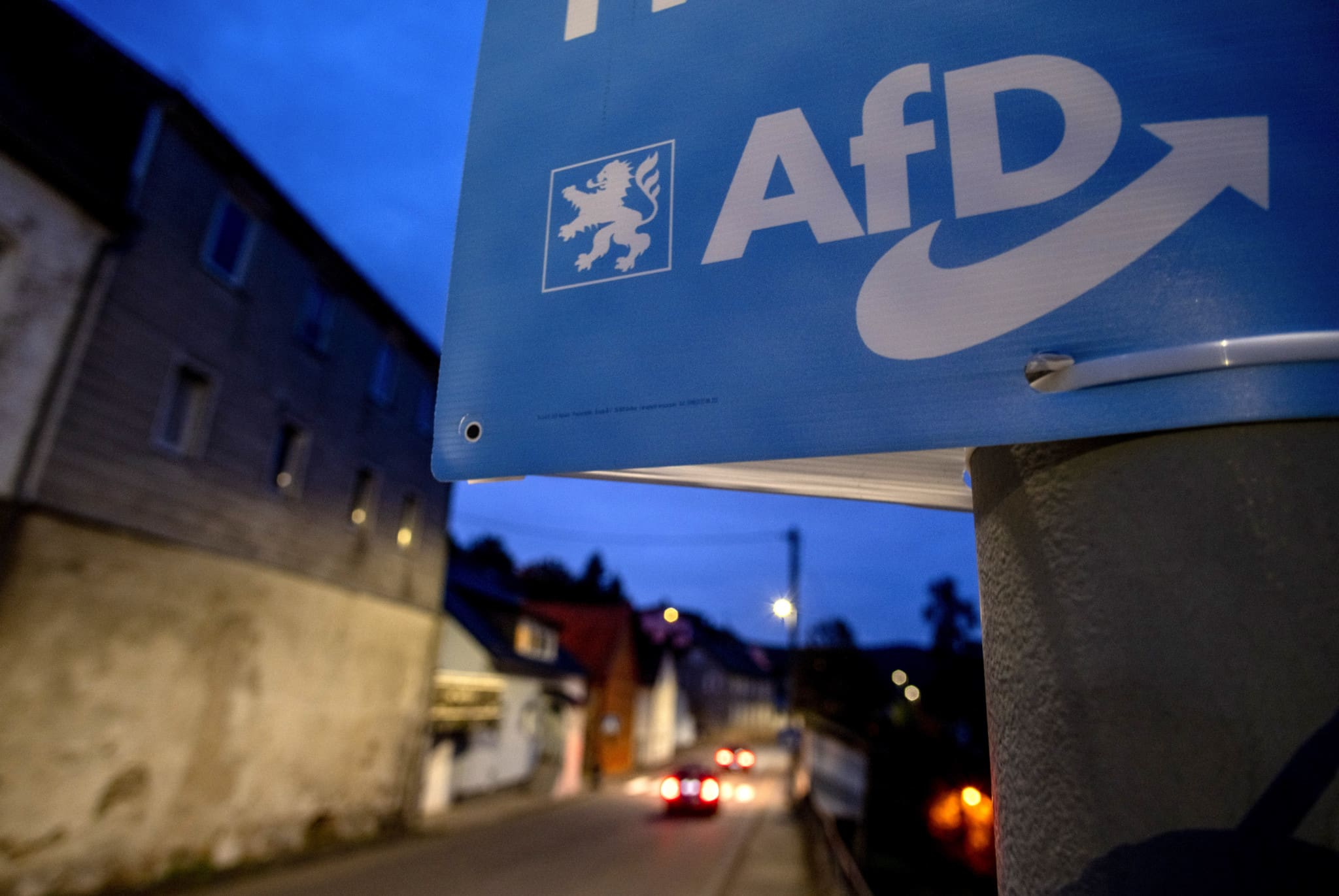The regional branch of the right-wing Alternative for Germany (AfD) party in the state of Saxony-Anhalt has been classified as an extremist organization by the state’s domestic intelligence agency, just days after the party achieved first place in a state-wide poll.
The Federal Office for the Protection of the Constitution, Germany’s domestic intelligence agency, claimed to have gathered sufficient evidence to prove several of its members and elected officials are right-wing extremists.
The move was confirmed by Jochen Hollmann, the head of the agency’s regional division in Saxony-Anhalt, on Tuesday.
He explained that the AfD’s regional association in the state had been under investigation for alleged extremism since 2021, but the federal intelligence agency has now received new information to show the party is “not compatible with human dignity, democracy, and the rule of law.”
Saxony-Anhalt is the second state where the AfD’s regional party has been denounced as an extremist organization following findings in Thuringia back in 2021.
The classification provides federal intelligence agents with greater powers to monitor the communications of party officials and members, raising serious questions about civil liberties and democratic norms in Germany.
Such surveillance includes but is not limited to the recruitment and use of informants, the tracking of financial flows, as well as wiretapping, reading, and monitoring the private communications of German citizens.
In an exclusive interview with Remix News back in September, German MEP Maximilian Krah, who is preparing to lead the AfD’s 2024 European Parliament election campaign, claimed that Germany has a history of using an extensive surveillance regime that has long targeted the opposition.
[pp id=93209]
“I suspect that even this call we are now having is being surveilled,” he told us.
“In other democratic countries, it would be unbelievable to have a government agency surveilling the opposition the way they surveil us.
“There is something new, however: The public and the voters don’t care about it anymore. Although they surveil us, although they write in the newspapers that they consider us to be a threat to public order, people just don’t care. They continue to vote for us. They join our ranks,” he added.
On Tuesday, Nikolaus Kramer, chairman of the AfD parliamentary group in the state of Mecklenburg-Western Pomerania, described the move by the intelligence agency as “transparent and a pitiful attempt at denunciation.”
The move comes just days after a poll conducted by INSA for the German tabloid newspaper Bild showed the AfD storming to first place in the state of Saxony-Anhalt with 33 percent of the vote.

The right-wing populist party, which campaigns against mass immigration, opposes the provision of arms to Ukraine, and is inherently Eurosceptic, tops the polls following a surge in popularity of 7 percentage points since the last polling in April.
The state of Saxony-Anhalt is currently governed by a coalition of the Christian Democratic Union (CDU), the Social Democratic Party (SPD), and the Free Democratic Party (FDP), widely considered to be the political mainstream under threat from a considerable rise in populism across the country.
[pp id=96675]
Support for the AfD, which has typically been reserved for states previously located in the former East Germany, has grown exponentially across the country, and the German electorate is far more welcoming of the party being involved in government than officials within mainstream politics.
A poll by Civey for Spiegel magazine found that 47 percent of Germans would find it acceptable if parties entered a coalition with the AfD at the state level, a figure that rises to 55 percent in eastern states.
Nationally, the party is hot on the heels of the opposition CDU, regularly polling in second place and comfortably ahead of the parties involved in the federal liberal coalition.






